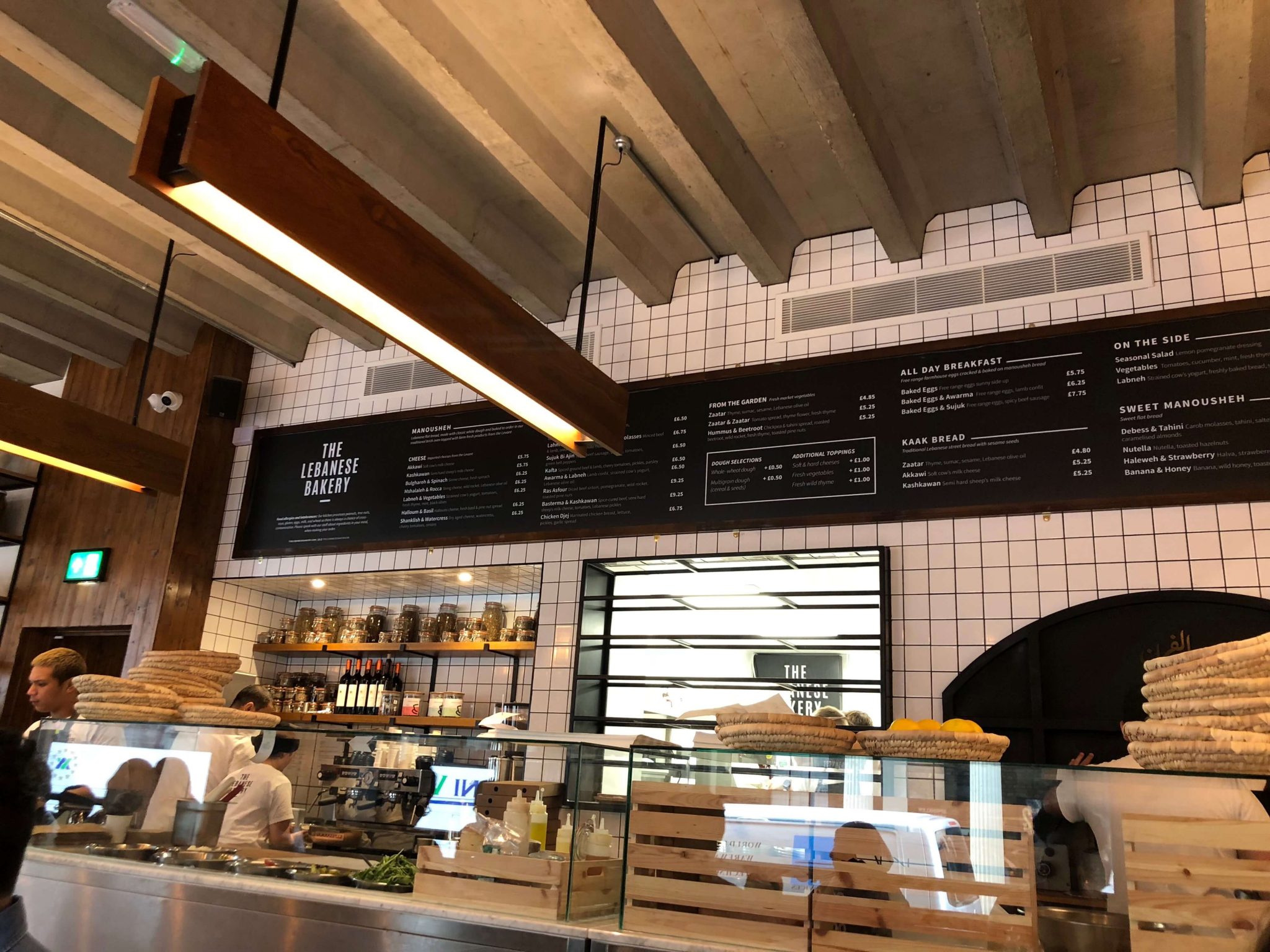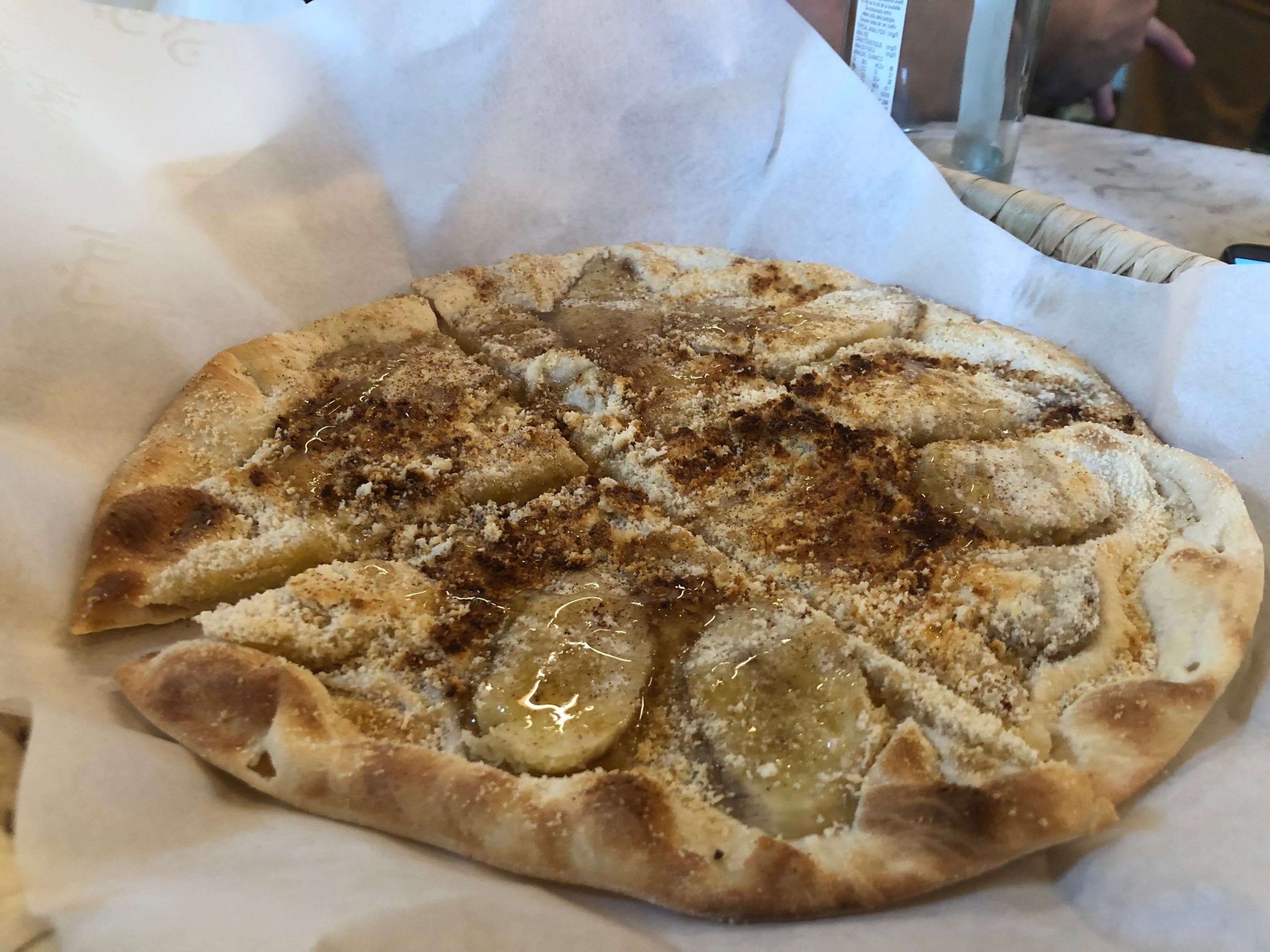We’re delighted with the places that our foodie journey has taken us so far and we recently stopped off at The Lebanese Bakery based in Covent Garden, London. Our editor, Joy Joses, visited the popular destination last month to find out more about the origins of the dishes.
The Lebanese Bakery was founded by brothers Sameer and Basam Chamoun two years ago in Beirut. The menu, which is centred around Manousheh, a soft dough, topped with customary Lebanese ingredients including hummus and herbal za’atar (a wild thyme-sesame blend), has ensured the restaurant has quickly secured a cult following and by popular demand, they opened their restaurant in London. There was no doubting the restaurant’s status as on a lovely summer August day, the queues to enter were reassuringly long.
I’ve always thought that if the indigenes of the food culture are absent, be wary. I need not have worried, outside of myself and a guest, the restaurant was filled with Lebanese and other Middle Eastern indigenes. Authenticity? Check!
The decor is very simple. Clean, wooden lines with an excellent view of the kitchen, where all the magic happens. It’s another good sign when a restaurant has the confidence to offer diners ringside seats to their kitchen.

We were quickly seated by the very attentive manager, Rami, who suggested we try the traditional beverage on the menu. While we drank our fresh-squeezed pomegranate juice, which could be an acquired taste, but for me, was incredibly moreish, we were joined by the ‘creative mind’ and head chef, Stephan who is responsible for creating the menu. We took the opportunity to ask Stephan how he comes up with the ideas and he explained that the recipes he comes up with are a mixture of the old and new. Stephan said: “We take old Lebanese recipes and make them contemporary and modern, more dynamic. We basically go through traditional foods and make them new and different.”

Stephan’s dedication to his craft is admirable. He explained, “While we have both Christians and Muslims in Beirut, the Christians have a very long history in Beirut and they have churches all over Lebanon, so I would often go in them to ask if they have anything written about food, in the 1800s or early 1900s. I would go there and ask to take old recipes, old combinations, what people used to eat and adapted them.”
Eating our way through five courses, made up of both savoury and sweet dishes, it was clear to see that the restaurant was passionate about staying true to their authentic, Lebanese roots, using traditional ingredients sourced directly from Lebanese farmers. We were introduced to ingredients such as Za’atar – fresh thyme, which is imported from Lebanon and Shanklish (cheese from Syria). The menu includes cheese-based or meat-based Manousheh. Particular favourites were the Lahmeh Bi Ajin (£6.50) (minced beef and lamb, onions and bell peppers) and the Kafta (£6.50), much like the more familiar Kofta, a spiced beef and lamb with tomatoes and pickles.


They do desserts really well too. We ordered the Honey and Banana Manousheh and as it arrived, Stephan told us how he was inspired to create the dish after remembering how his mum used to prepare it for him when he was six years old.

It will come as no surprise that the food which passes through the restaurant’s Arabic basalt rock oven is all Halal, an important cornerstone selling point of the restaurant.
Our visit to The Lebanese Bakery was a pleasant culinary experience and we felt like not only had we been treated to delicious food, but we had also taken a walk-through Lebanon’s rich food history. When we asked Stephan what was the secret to their success? He said: “The most secret ingredient that we have is our passion.” We don’t doubt that for a minute.
Visit: www.thelebanesebakery.com
The Lebanese Bakery
Drury House
Russell St
London
WC2B 5HA
Read more restaurant reviews












